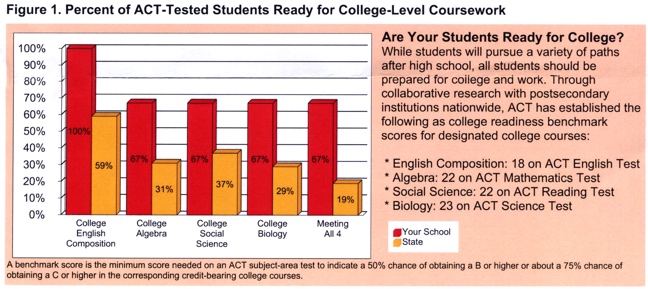
There are many sources of high school accreditation.
Each state has its own accrediting process; there are several regional non-profit organizations which have their own standards; and there a great many specialized accrediting organizations, such as those for religious schools, distance learning, and so forth. These agencies are not a guarantee of quality education; rather they are an attempt to specify details of how they think a school should be organized. We call these agencies traditional accreditation. Like most private schools ours does not have traditional accreditation (such as from the state).
The one kind of accreditation that focuses primarily on the quality of the students' education is accreditation by reputation. This is the only kind we claim: the continuing, voluntary financial support of a very particular body of parents. In addition, we transfer credits and students regularly to and from all our local public and private schools. For many years our local high schools have relied on us to provide coursework for their students (especially in the summer), which we gladly do to be supportive of our community. We are also registered with the College Entry Examination Board, and we are authorized by the state of Kentucky to verify whether students are in academic compliance for receiving driving permits and licenses. Our diploma has been accepted by all our local and regional colleges and many of our students have gone on to four-year colleges and universities. Indeed, all of our students are challenged to meet not only the usual requirements of high school, but also our additional requirements of self-discipline and motivation. A few years ago professor of education at a nearby university reviewed our students' performance on the ACT test; her letter to us said:
"We live in an age in which grade inflation, also known as 'dumbing down the curriculum,' is commonplace. Parents considering your high school will wonder whether grades earned here represent actual learning. I have examined the records of students at this school who, over the last several years, have taken the ACT test. A Scatter Plot of the relationship between their Grade Point Average and their ACT scores showed a definite linear trend and a clear, positive relation. The Pearson Product Moment Correlation between these two measures was 0.61, which is an unusually large correlation. High grades here not only represent a lot of work, they greatly advance a student's preparation for college."
Traditional accreditation has been common since accreditation became popular in the early 1900s. There was a time, perhaps a generation or so ago, when this was the only way colleges had of making sure that a student did not come from a "diploma mill." It comes as a surprise to most people, but accreditation agencies have never had the job of assessing the quality of an educational institution, only its organizational structure and longevity. In the 1930s and '40s, diploma mills would pop up and take money, then disappear overnight. This kind of school is rare today.
The important thing to remember about traditional accreditation is this: nearly every public high school is accredited by its state and by its regional association, yet many of them are not doing a satisfactory job of preparing young people for college and for life. The colleges are quite aware of this, and when they want to know how well prepared a student is for the demands of college, they look at standardized scores, such as SAT and ACT (often called "college entrance" exams). As is well known, most colleges and universities welcome home schooled and other nontraditional students because they tend to do better than traditional students, despite their getting an education from so-called non-accredited sources.
How our students perform is important, so we'd like to share a chart from the ACT organization that shows how our students have compared with others in the state in a recent year. This kind of information is provided periodically to all participating schools.

Triplett High School has been graduating students and sending them off to colleges and universities around the state and out of state since the late 1990s and has had their preparedness questioned only three times that we know of: once by the University of Phoenix, an online university, once by a culinary chain in California, and once by a school in Indiana. We cannot guarantee that you will not run into an organization that will discriminate against you, but you are far more likely to be turned down for low grades or low test scores than for our status. If you do apply to a school that questions your preparedness, you can still choose an alternative school or perhaps try again, presenting yourself as a home school graduate. You could also start off in your second choice school then try to transfer later. That said, you may experience resistance from military recruiters and from the NCAA. Though our graduates have entered all branches of service and have gained acceptance into NCAA, some have encountered resistance, which seems to depend on the recruiter or NCAA evaluator you have to deal with.